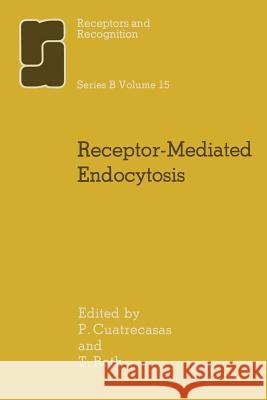Receptor-Mediated Endocytosis » książka
Receptor-Mediated Endocytosis
ISBN-13: 9789400959774 / Angielski / Miękka / 2012 / 304 str.
This volume focuses exclusively on those endocytic processes that sequester proteins by a selective, receptor-mediated mechanism. In such an endocytic process, cell surface receptors specifically bind protein ligands and localize them to specialized invaginations of the plasma membrane. These regions are coated pits, so named because they are lined on the cytoplasmic face with an ordered array of the protein, clathrin. It is this 'coat' which provides their characteristic electron microscopic image. Subsequently, these regions pinch off to form coated vesicles which rapidly lose their 'coat' and then fuse with other organelles or the plasma membrane. The hallmarks of ,this process are the specific receptors, coated pits, coated vesicles and an ordered sequence of transit events leading to delivery to selected locations. Receptor recognition, specific disposition of the endocytosed ligand and the existence of recep- tor-ligand complexes at highest density in coated pits define the process as selective and concentrative. This topic has received ever increasing attention during the past few years. The evolving mechanisms are especially exciting because they come at a time when the conventional views based on thermodynamic arguments suggest that proteins should not be able to cross into the cell. Receptor-mediated endocytosis, however, reconciles the view that biological membranes should be impervious to macromolecules with the evidence that certain mac- romolecules do gain entrance into the cell. During the last few years this field has been stimulated by studies on the uptake and processing of low density lipoproteins (LDL) by cells.











